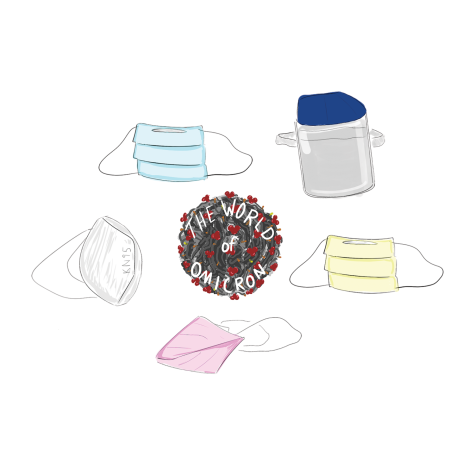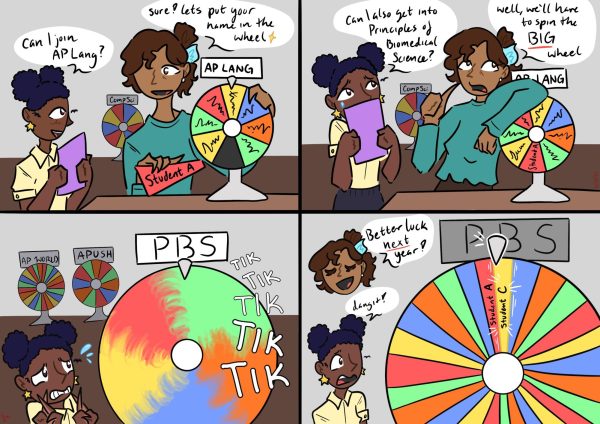Wet markets are one of the suspected origin sites for COVID-19
People still don’t know where exactly COVID-19 could have originated from in Wuhan, China, but many suspect it may have came from a wet market.
The coronavirus pandemic struck suddenly and has spread all over the world, with more than 1.3 million cases in the U.S as of May 14, according to the Centers for Disease Control and Prevention. Social distancing is part of life right now as most of the world is on lockdown.
The pandemic is believed to have originated in Wuhan, China, according to BBC News. It supposedly came from a wet market, which refers to any market where wet goods like fresh produce and meat are sold. Some wet markets sell live animals. China reopened their wet markets on April 17 in the same place where COVID-19 allegedly all started.
Places like wet markets are believed to have been responsible for outbreaks of SARS and Ebola, according to NPR. All of these viruses are zoonotic, meaning they originate in animals and are transferred to humans.
The virus is believed to have jumped from animals to humans at a wet market in the center of Wuhan.
Wet markets are sometimes very unsanitary places, often holding live animals that are slaughtered, then given to customers minutes after, according to National Geographic. Some of them sell turtle blood, snake blood, and other “exotic” cuisines. Many people are afraid or disgusted of wet markets because of this reason. So why would China reopen places that are linked to COVID-19 and other pandemics amidst a major pandemic right now?
With the permission of the World Health Organization, China began on April 5 reopening its wet markets despite strong opposition from leaders of other countries. The selling of wildlife animals has been banned at the wet markets, but the U.S, Australia, and about 70 American House and Senate representatives are pressuring China to close the markets.
Australian Federal Agriculture Minister David Littleproud is persistent about having a scientific investigation into the wet markets, as well as the sanitary risks they may pose.
“It only makes sense that we go and investigate these wildlife wet markets, to understand the risks they pose to human health and also to biosecurity,” Littleproud said in a statement to reporters published by NPR.
The World Health Organization (WHO) gave the thumbs-up for wet markets to reopen.
“WHO’s position is that when these markets are allowed to reopen it should only be on the condition that they conform to stringent food safety and hygiene standards,” Dr. Tedros Adhanom Ghebreyesus, director-general for WHO, told NPR. “Governments must enforce bans on the sale and trade of wildlife for food.”
Australian Prime Minister Scott Morison strongly disagrees with this decision, saying that the world needs to be protected against possible sources of COVID-19 outbreaks, according to NPR.
Secretary of State Mike Pompeo agreed, saying, “Given the strong link between illegal wildlife and zoonotic disease, the United States has called upon China to permanently close its wildlife wet markets and all markets that sell illegal wildlife…” NPR reported.
Although China has received much criticism from other countries for reopening its wet markets, it still plans to keep them open. Wet markets are an important source of food for millions of people worldwide. People that rely heavily on wet markets as their main food source would struggle to survive without them.
Wet markets are often cheaper priced than regular supermarkets in China, making them a good option for the people in a financial struggle, according to TheSimpleSum, a personal finance content portal.
Wet markets are also found in Hong Kong, Malaysia, Mexico, Thailand, and many other countries around the world.
Not all wet markets are the filthy, smelly places that they’re stereotyped as. Some are relatively clean and pose no threat to potential outbreaks. It’s only wet markets that sell live animals and are unsanitary that are breeding grounds for pandemics such as COVID-19.
But swift and strong restrictions need to be placed on wet markets that sell live animals. Closing these specific wet markets for good would prevent further outbreaks of any zoonotic diseases.

Jett Gold is a sophomore at Cal High, and is in his second year of reporting for the Californian. Jett enjoys playing sports, and does wrestling and track...


